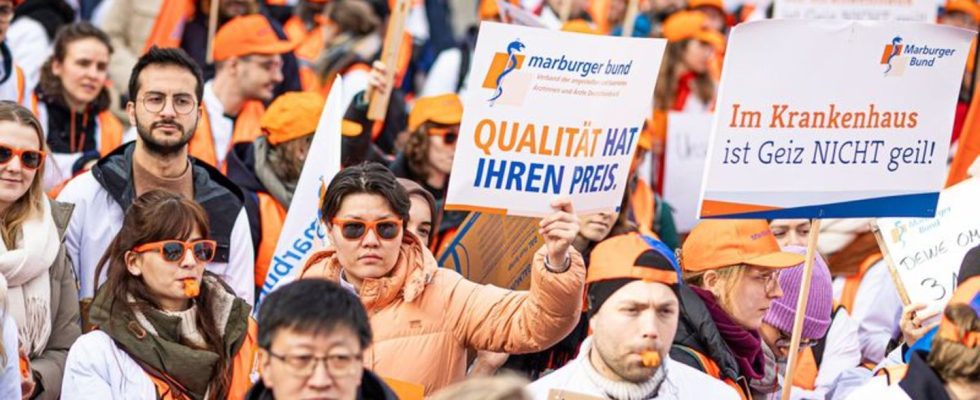Hospitals
Warning strike: Doctors at university hospitals are putting pressure on the collective bargaining dispute
Demonstration by university hospital doctors on the Opernplatz in Hanover. photo
© Moritz Frankenberg/dpa
In Hanover, 4,000 doctors protested for better working conditions and higher pay at university hospitals. They want to be paid like their colleagues at community hospitals.
According to police, around 4,000 people took part in the central rally in Hanover, many in white coats. You could see posters with the inscription “Doctors at the limit = patient in danger” or “Too tired for anesthesia”. The Marburger Bund had called on more than 20,000 doctors at the state’s 23 university hospitals nationwide to go on a warning strike. There were also smaller protests at several clinic locations in southern Germany.
The Marburger Bund is demanding 12.5 percent more pay for doctors and improvements to working conditions. According to the union, the basic salary for doctors at university hospitals is around 200 to 600 euros lower than in municipal hospitals with longer working hours. So far, no agreement has been reached with the Collective Bargaining Association of German States (TdL) in three rounds of negotiations.
Increasing difficulties in finding young talent
“University hospitals used to be able to rely on attracting enough young talent to provide highly specialized care for seriously ill patients,” said Andreas Botzlar, second chairman of the Marburg Federation. This is becoming increasingly difficult because of the poor conditions. Top medicine should not have the red flag when it comes to payment.
The TdL regretted the failure of the round of negotiations in mid-January and announced its willingness to compromise. “It remains the case that our appreciation for the work of the doctors at the university hospitals should also be expressed in money,” said Monika Heinold (Greens), Finance Minister of Schleswig-Holstein and TdL negotiator. She hopes to find a solution acceptable to both sides at the end of February.

